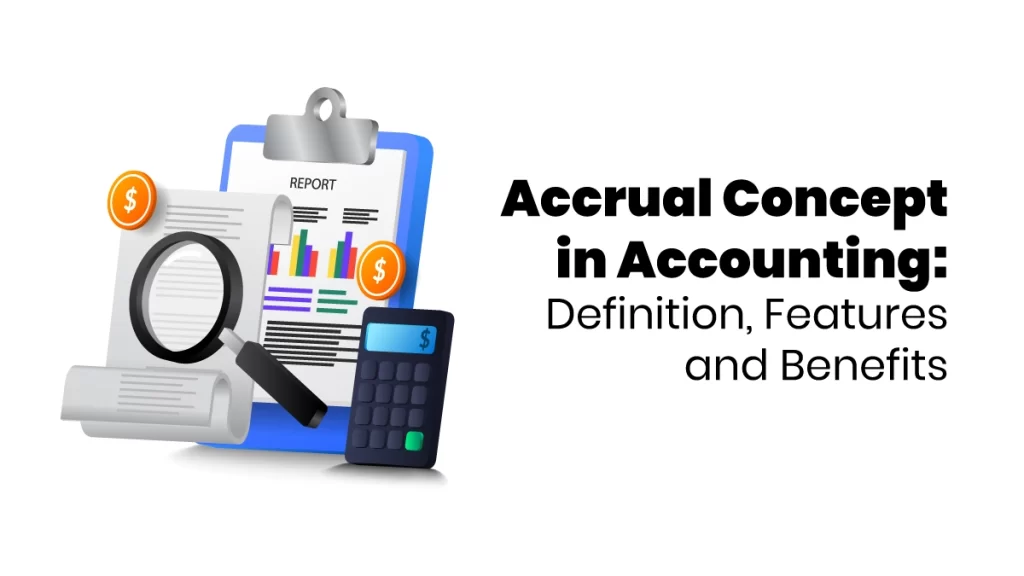Accrual accounting recognizes revenue when earned, rather than when cash is received. By incorporating both cash and credit sales into monthly financial reports, it provides a more accurate reflection of a business’s financial health.
The accrual concept in accounting is one of the fundamental principles in accounting recognized by IFRS and GAAP. It directs organizations globally to recognize revenues and expenses as per earnings and incurrences, not only when they come across cash receipts or payments.
Concept of Accrual Accounting
With regard to accrual concept in accounting, recording business revenues involves recognizing revenues and expenses of a business enterprise transacting once they are invoiced. This method focuses on the moment the transaction is agreed upon and discussed.
In accrual concept in accounting, businesses expect to be paid and to pay others due to contracts that were made. For instance, when a supplier submits an invoice, the cost is documented on that specific date, irrespective of when the payment is made. Likewise, revenue is brought to the account when earned rather than when the money is received. Accrual accounting deals with records of transactions when they occur, regardless of the physical exchange of cash.
Features of Accrual Accounting
Accrual concept in accounting differs from other forms of accounting in certain peculiarities and structures. They assist in the easy financial management of all business requirements by efficiently documenting their revenues and expenses. Here are some critical importance of accrual accounting:
Records Revenue When Earned
Accrual accounting records revenue and expenses as soon as earned or incurred, not when the money is received or paid. This approach helps businesses keep track of their finances more accurately. By recording transactions immediately, companies can easily associate payments with specific services or projects and always have an accurate financial overview.
Matches Payments to Invoices
Accrual accounting ensures that payments are matched with the corresponding invoices. This practice helps maintain a clear and organized record of all transactions. It also reduces the risk of fraud and ensures that all completed work and projects are paid for. Properly managing and organizing receipts and invoices keeps your finances audit-ready and transparent.
Tracks Ongoing Payments
Managing accounts for large businesses can be tricky, especially if you wait until the end of the month to balance the books. Payments for completed projects or purchases may still need to be processed. By noting accrued payments, you can keep track of all unpaid services in the month they were invoiced, making it easier to balance the accounts accurately.
Measures Expenses for Specific Periods
When you want to see the impact of a new campaign or changes to your services, accrual accounting helps by showing the immediate response from customers and clients. Even if the money has yet to reach your account, these purchases are recorded when they were made. This allows you to connect them with other business activities happening simultaneously, helping you understand how different actions relate to each other.

Benefits of Accrual Accounting
Accrual accounting can be very helpful for your business, though it might take some time to get used to. It can support your strategies and help you plan and achieve your accounting goals.
Easier Tracking of KPIs
Accrual accounting records payments when made, not when the money is transferred. This helps in tracking key performance indicators (KPIs) more effectively. For example, if you want to measure the success of a campaign based on revenue during that period, accrual accounting shows accurate results.
Tracking KPIs can quickly show what your business is doing well and where it needs improvement. It can highlight areas to invest in for growth and areas that need changes to improve customer experiences. This helps guide your business growth and ensures success.
Better Business Preparedness
Accrual accounting lets you see what payments will come in and go out, making it easier to manage your cash flow. This helps you plan for future months and avoid big drops in savings. Good communication with your team also keeps everyone on the same page. Accrual accounting tracks bills, wages, and regular expenses.
By predicting your cash flow, you can make better decisions about new strategies or investments. For example, if you know you’ll get a significant boost in income this month because of last month’s sales, you can use this to plan when to add new features or spend on tools to grow your e-commerce.
Aligns with GAAP
As your business grows, you’ll need to meet more financial standards. Accrual accounting is required by Generally Accepted Accounting Principles (GAAP), so using it early helps avoid problems as you expand. It also means you won’t need to switch your accounting method later.
To learn more about accrual accounting, check out Finprov Learning. Finprov offers short term accounting courses online and a wide range of programs. Our best accounting courses after graduation cover CBAT, PGBAT, Income Tax, Practical Accounting Training, PGDIFA, DIA, GST, SAP FICO, Tally Prime, MS Excel, and more. Whether you’re a graduate or a professional, our carefully designed accounting courses ensure a thorough learning experience.
At Finprov, we don’t just focus on theory; we provide hands-on practical training to give learners real-world skills. Plus, we offer a practical accounting course with placement assistance to help you kickstart your career after completing the courses. Contact Finprov today to explore accounting opportunities and enhance your knowledge for a brighter future.










